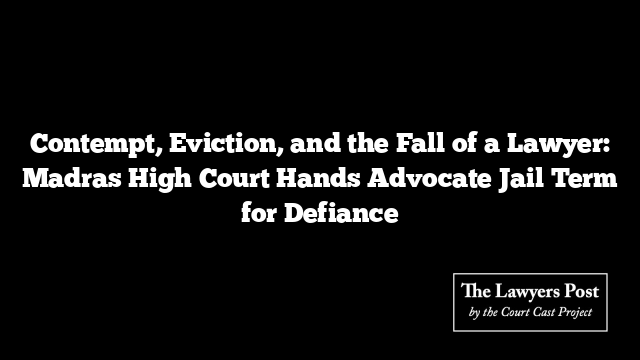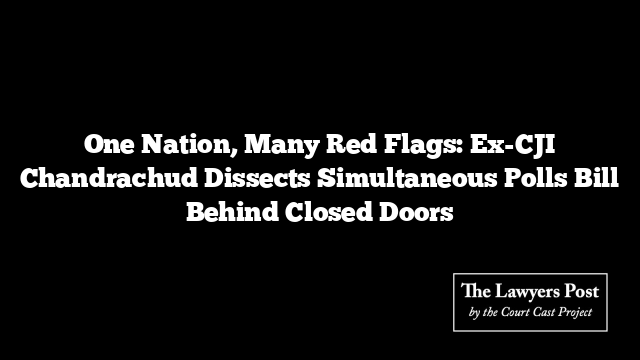In a searing rebuke that echoed far beyond courtroom walls, the Madras High Court sentenced advocate A. Mohandass to four months of simple imprisonment for contempt of court. His offence? Open defiance of multiple eviction orders—first from the Rent Control Tribunal, then the High Court, and finally the Supreme Court.
Justice N Sathish Kumar, delivering the ruling, held back no punches. The Court observed that the advocate’s conduct betrayed neither remorse nor repentance. “Despite giving an undertaking to vacate,” the Court noted, “he resumed mischief with a fresh claim to the property. This is not a case where a fine alone suffices.”
₹2,000 in penalties were imposed, but more significantly, jail time was deemed necessary. “If courts hesitate to respond firmly to such misconduct,” the judge warned, “we risk handing over the law to those determined to bend it.”
The story begins in 2006, when Mohandass took a building on rent from a man named Parsanchand. After Parsanchand’s passing in 2009, his son, P Vikash Kumar, sought possession for personal use. Legal battles followed. Kumar won the eviction order in 2021—an order upheld on appeal. In 2024, the High Court gave Mohandass two months to vacate. The Supreme Court extended his stay till May 31, 2025.
But the stay didn’t mean surrender. Despite filing a belated affidavit committing to vacate, Mohandass stayed put. Worse, he attempted to undercut the enforcement by questioning the bailiff’s role and claiming portions of the property weren’t covered by the eviction.
On June 5, just as the Court was ready to pass orders in the contempt proceedings, Mohandass tried to salvage the situation—promising that the landlord could take possession and claiming he wouldn’t interfere. That, too, turned out to be a mirage.
When the High Court’s bailiff arrived, the advocate was there—not to comply, but to obstruct. He raised a ruckus and interfered with the inventory process. The Court called it what it was: a show of contempt under the guise of legal argument.
Justice Kumar remarked that Mohandass, as an officer of the court and member of the legal community, was held to a higher standard. “A lawyer disobeying court orders sends a corrosive message to the public—that a law degree is a shield against accountability,” the order stated.
The apology Mohandass submitted in his affidavit? The Court found it hollow. “A single line tacked on at the end of an explanation cannot be treated as a sincere apology,” it said.
Repercussions will go beyond jail. The Bar Council of Tamil Nadu and Puducherry has been directed to initiate disciplinary proceedings against him.
As the judgment made clear, this was not about one property dispute. It was about the rule of law—and the message that no member of the Bar, however emboldened, is above it.





